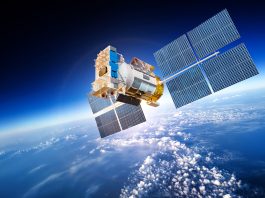RSS-Hydro considers the role of simplicity in enhancing reliability, speed, accessibility, cost-effectiveness, sustainability, and security through collaborative community efforts in the context of climate resilience and disaster management.
The new space economy, a vibrant world of artificial intelligence (AI), powerful GPUs, in-orbit computing, and a deluge of satellite data, is rapidly reshaping our interaction with Earth. Yet, amidst this technological whirlwind, a crucial principle emerges: simplicity. In the race to leverage groundbreaking technologies for vital applications like climate resilience and disaster management, simplicity isn’t just a virtue; it’s a necessity, interwoven with sustainability and security.
Imagine a disaster scenario: a catastrophic flood, a raging wildfire, or a sudden earthquake. In these moments, speed and clarity are paramount. Complex, convoluted systems are liabilities, prone to failure and difficult to interpret under pressure. This is where the elegance of simplicity shines, but it must be built on a foundation of collaborative effort.
Why simplicity matters in space-driven applications and how we build it together
The sheer volume of data generated by modern satellite missions is staggering. Commercial constellations and public initiatives are constantly transmitting terabytes of data, from high-resolution RGB imagery to multi-spectral data. Processing these data efficiently and translating it into actionable insights requires robust yet streamlined workflows and a shared understanding.
Reduced complexity, increased reliability
Complex systems are more prone to errors. In the context of space-based applications, where failure can have dire consequences, simplicity is a critical factor in ensuring reliability. This necessitates a community of practice that promotes standardised practices, open-source verification, and rigorous testing protocols.
Faster processing, quicker response
Disasters demand rapid response. Simplicity enables faster data processing and analysis, allowing for quicker identification of affected areas, assessment of damage, and co-ordination of relief efforts. This requires shared computing infrastructure, optimised algorithms, and standardised data-sharing protocols, all fostered by a collaborative community.
Enhanced accessibility, wider adoption
For space-based solutions to be truly effective, they must be accessible to a wide range of users, including emergency responders, policymakers, and communities on the ground. Simple, intuitive delivery mechanisms or interfaces and clear, concise data visualisations are crucial for ensuring that these solutions are easily understood and utilised. This demands a community effort focused on user-centred design, open-source interface development, and accessible (financial) support programmes.

Cost-effectiveness and scalability
The new space economy must strive for cost-effectiveness to democratise access to space-based technologies. Simplicity translates to lower development and operational costs, making it possible to scale up solutions and deploy them in regions where they are needed most. This requires a shared approach to resource management, open-source hardware development, and collaborative launch initiatives.
Sustainability and security
As space becomes more accessible, sustainability and security become paramount. A community of practice must establish guidelines for responsible space debris mitigation, secure data transmission, and ethical AI development. Shared best practices ensure the long-term viability and security of space-based applications.
The necessity of cost reduction and community building
The goal of providing space technology-driven solutions for climate resilience and disaster management necessitates a significant reduction in the cost of accessing and utilising space data, and this requires a collaborative ecosystem:
- Standardisation and open-source: Embracing standardised data formats and open-source tools reduces the need for proprietary software and specialised expertise, lowering costs and increasing accessibility. This requires a community-driven effort to develop and maintain open-source libraries and data standards.
- Efficient data processing: Optimising data processing pipelines and leveraging in-orbit computing and onboard satellite processing can reduce the amount of data that needs to be transmitted to Earth, lowering bandwidth costs. Shared computing infrastructure and collaborative algorithm development are essential.
- Democratisation of launch access: Increased competition and innovation in the launch sector are driving down launch costs, making it more affordable to deploy satellite constellations. Shared launch initiatives and collaborative payload integration can further reduce costs.
- In-orbit data sharing and shared computing infrastructure: Creating a community framework for in-orbit data sharing and shared computing resources can optimise resource utilisation and reduce operational costs.

The future of space is simple, secure, sustainable, and collaborative
The new space economy is poised to revolutionise how we understand and respond to our planet’s challenges. However, to fully realise this potential, we must embrace the power of simplicity coupled with a robust community of practice.
By focusing on streamlined workflows, intuitive interfaces, cost-effective solutions, and a shared commitment to sustainability and security, we can ensure that space-based technologies are accessible, reliable, and effective in addressing critical issues like climate change, risk resilience and disaster management.
In a world increasingly defined by complexity, the simple truth is that simplicity, built and sustained by a collaborative community, is the key to unlocking the full potential of the (new) space economy, especially when lives are on the line.
Space needs to become cheaper, the data it provides needs to be easily accessible, and its development needs to be done with security and sustainability in mind if we are to truly use it to save lives and protect our planet. In this evolving landscape, companies like RSS-Hydro play a crucial role.
By focusing on the development and deployment of accessible, user-friendly geospatial solutions, they bridge the gap between complex space data and actionable insights for real-world applications. Their expertise in processing and interpreting satellite data, particularly for hydrological applications, aligns perfectly with the need for simplified, efficient workflows.
Through their commitment to developing tools that are both powerful and intuitive, RSS-Hydro contributes to the broader effort of democratising access to space-based information, making it easier for communities and decision-makers to leverage this technology for climate resilience and disaster response. They are a vital part of the growing community of practice, helping to ensure that the promise of the new space economy translates into tangible benefits for the planet and its inhabitants.
Please note, this article will also appear in the 22nd edition of our quarterly publication.









